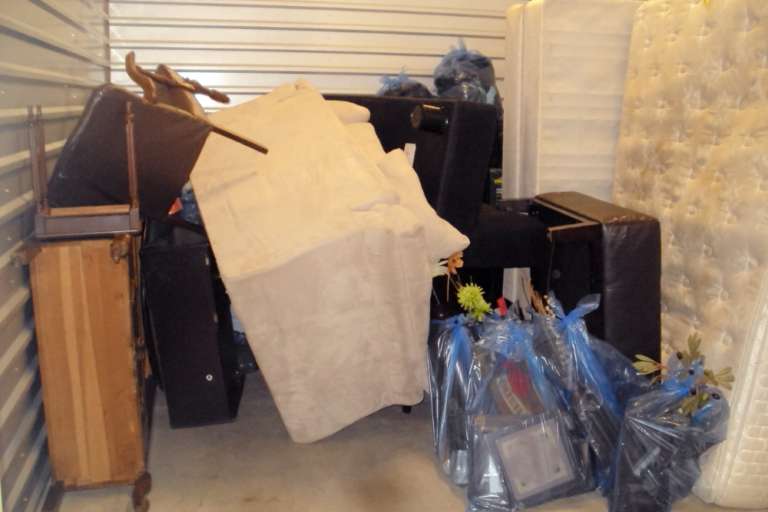
The Best Eco-Friendly Junk Removal Practices You Should Follow
September 17, 2025
The Importance of Professional Scrap Metal Removal Services
September 17, 2025How Recycling E-Waste Helps Protect the Planet
In today’s digital age, electronic devices have become a part of nearly every moment of our lives. From smartphones and laptops to televisions and appliances, technology continues to evolve, leaving behind a growing pile of discarded gadgets known as electronic waste, or e-waste. Unlike traditional trash, e-waste is filled with both valuable materials and harmful substances that require careful handling. Recycling e-waste is not just a matter of convenience—it’s a vital practice that helps protect the planet. By redirecting these items away from landfills and into recycling facilities, communities reduce pollution, conserve resources, and minimize the dangers posed by toxic materials. The impact of proper e-waste recycling extends far beyond clearing clutter; it directly influences environmental health, economic sustainability, and public safety. Choosing to recycle old electronics is more than a personal responsibility—it is a meaningful contribution toward a healthier future for the Earth.
Understanding the growing problem of electronic waste
E-waste is one of the fastest-growing categories of waste worldwide. Every year, millions of tons of discarded electronics are generated, fueled by the rapid pace of technological innovation and shorter product life cycles. Smartphones that were cutting-edge just a few years ago are now outdated, while appliances and devices are replaced more frequently due to convenience and performance upgrades. This surge has created a mountain of unwanted electronics that, without intervention, often ends up in landfills or incinerators.
The issue is not simply about clutter. Many electronic devices contain hazardous materials such as lead, mercury, and cadmium, which can leach into soil and water when improperly disposed of. At the same time, these devices hold valuable metals like copper, gold, and aluminum that could be reused if properly extracted. Understanding the scope of the e-waste problem highlights why recycling is more than a preference—it is an urgent necessity for environmental and human health.

The hidden dangers of e-waste in landfills
When e-waste is discarded with regular trash, it frequently ends up in landfills where it can cause serious harm. As electronics break down, they release toxins into the surrounding environment. Lead from circuit boards, mercury from screens, and other toxic elements seep into soil and groundwater, creating long-term contamination risks. These pollutants are not contained within a landfill’s boundaries; they can spread into nearby ecosystems, threatening both wildlife and human communities.
What makes this issue more alarming is that the damage is often invisible at first. Toxic leachate builds slowly, but its impact is persistent, affecting agriculture, drinking water, and air quality. Without proper recycling, the health risks multiply over time. Professional e-waste recycling provides a safeguard by ensuring these hazardous materials are isolated and treated correctly, preventing them from ever reaching the environment. This makes recycling an essential act of protection against hidden and long-lasting dangers.
Recycling e-waste helps recover valuable resources
Inside discarded electronics lies a surprising wealth of reusable materials. Precious metals such as gold, silver, palladium, and copper are used in circuit boards and wiring, while steel and aluminum are found in casings and components. Extracting these materials from old electronics is far less damaging to the environment than mining new resources, which consumes enormous energy and disrupts fragile ecosystems. Recycling allows these valuable materials to be reintroduced into the production cycle.
By recovering and reusing these resources, e-waste recycling reduces the demand for mining, lowers industrial costs, and conserves natural supplies. Each recycled device represents an opportunity to reclaim elements that would otherwise be wasted. Professional recycling facilities are equipped with advanced technology to separate and process these materials efficiently. Choosing to recycle e-waste is, therefore, not just about disposal but also about recognizing the hidden value inside every electronic item that might otherwise be discarded.
E-waste recycling reduces greenhouse gas emissions
The environmental benefits of e-waste recycling extend to reducing greenhouse gas emissions. Manufacturing electronics from virgin raw materials requires significant energy, from mining and refining metals to processing plastics and assembling components. Recycling shortens this cycle by repurposing materials directly from old devices, cutting energy use dramatically in the process. Lower energy consumption translates into fewer emissions of carbon dioxide and other harmful gases.
This reduction helps mitigate the impact of climate change. Every recycled computer, television, or smartphone becomes part of a larger effort to decrease the carbon footprint of modern technology. While a single recycled device may seem small, the cumulative effect of millions of electronics being responsibly recycled is substantial. Professional recycling services create a system where individual actions contribute to global progress, ensuring that technology and environmental stewardship can coexist in a more balanced way.
Safe recycling practices protect human health
Beyond the environment, e-waste recycling has direct benefits for public health. Improperly discarded electronics can release toxic dust and fumes, which pose serious risks to workers and nearby residents. Lead exposure, for instance, can affect neurological development, while cadmium can damage kidneys and bones. In some areas, informal recycling operations without safety standards expose communities to dangerous conditions.
Professional e-waste recycling ensures that health hazards are minimized by using regulated, safe, and controlled methods of handling electronics. Workers are protected through safety protocols, while advanced systems prevent toxins from escaping into the air or water. This structured approach transforms what could be a dangerous process into one that contributes positively to society. By choosing responsible recycling services, communities protect not only their environment but also the well-being of people who might otherwise be harmed by careless disposal practices.
Recycling electronics supports sustainable manufacturing
Sustainability in manufacturing depends on access to affordable and reliable materials. E-waste recycling helps meet this demand by supplying industries with metals and plastics that can be reused in new products. This reduces reliance on expensive mining operations and lowers the overall environmental footprint of production. Electronics recycling is, therefore, a critical link in the supply chain for sustainable manufacturing practices.
Manufacturers who incorporate recycled materials also gain a competitive edge by appealing to environmentally conscious consumers. These sustainable practices signal a commitment to reducing waste and lowering emissions. Recycling e-waste provides the raw materials needed to create new electronics without exhausting the planet’s natural reserves.
E-waste recycling encourages responsible consumer behavior
The act of recycling electronics does more than handle waste—it creates awareness among consumers. When individuals take the time to recycle their old devices, they begin to think differently about the lifecycle of technology. This shift encourages people to consider the environmental impact of their purchases and adopt more sustainable habits, such as extending the use of devices or choosing products with eco-friendly features.
Recycling also helps communities develop a culture of accountability. Drop-off programs, collection events, and professional services make it easier for consumers to participate in responsible disposal practices. Over time, these efforts help transform recycling from an occasional act into a regular part of life.
Proper disposal prevents illegal exporting of e-waste
One of the darker sides of e-waste disposal is the practice of exporting unwanted electronics to developing countries, where regulations may be weaker and recycling is often done under unsafe conditions. These operations expose workers to harmful toxins and result in widespread environmental damage. The problem persists because illegal exporting often masquerades as secondhand sales or donations, making it difficult to track.
Professional recycling services help combat this issue by ensuring that e-waste is processed locally and responsibly. By following strict guidelines, these services prevent electronics from being shipped abroad under misleading circumstances. This approach not only safeguards the environment but also protects vulnerable communities from exploitation and toxic exposure.
E-waste recycling strengthens community sustainability
Communities that embrace e-waste recycling create a foundation for long-term sustainability. By reducing landfill use, conserving resources, and promoting public health, recycling initiatives benefit residents in practical and lasting ways. Local recycling programs and professional services make it possible for communities to manage waste more effectively while reducing environmental risks.
These practices also set an example for future generations. When children and young adults grow up in communities where recycling is normalized, they carry those values forward into their own lives. Community sustainability depends not only on infrastructure but also on shared habits and priorities. E-waste recycling represents a tangible action that strengthens community bonds, reinforces responsibility, and demonstrates a commitment to environmental stewardship that goes beyond individual households.
Recycling e-waste is an investment in the planet’s future
Every recycled electronic device represents a small but important investment in the planet’s future. The benefits go beyond immediate convenience or even financial value—they contribute to the health of ecosystems, the preservation of natural resources, and the reduction of pollution. When communities commit to recycling, they send a clear message that protecting the environment is a collective priority.
This investment ensures that future generations inherit a cleaner, safer, and more sustainable world. Choosing to recycle electronics is a step toward aligning modern technology with environmental responsibility. It is proof that human innovation can work in harmony with the Earth rather than against it.
Conclusion
E-waste recycling is not only about getting rid of old electronics—it is about protecting the planet, conserving resources, and building healthier communities. By preventing hazardous materials from contaminating soil and water, recycling reduces environmental risks. It also recovers valuable metals, lowers greenhouse gas emissions, and supports sustainable manufacturing. In Santa Rosa, CA, residents and businesses have access to professional solutions that make this process easier and safer. North Bay Junk Removal offers expert junk removal services that include responsible e-waste recycling. With a commitment to sustainability and efficiency, they ensure electronics are disposed of properly and ethically. For professional junk removal assistance, contact North Bay Junk Removal at 707-478-6817. Choosing responsible e-waste recycling today is a step toward securing a cleaner and more sustainable tomorrow.




